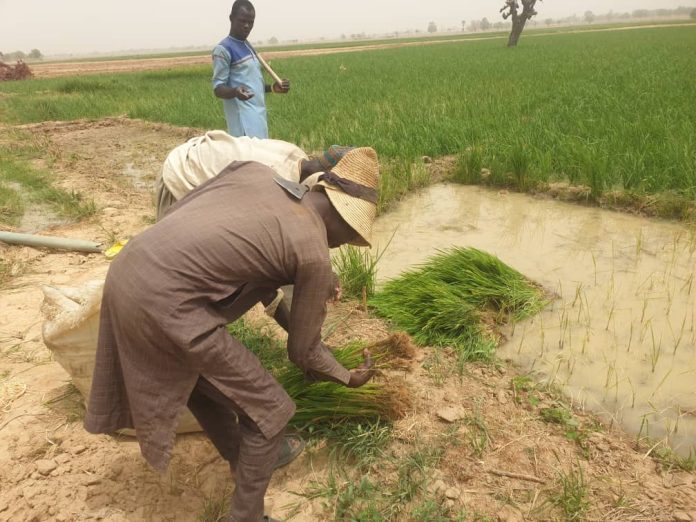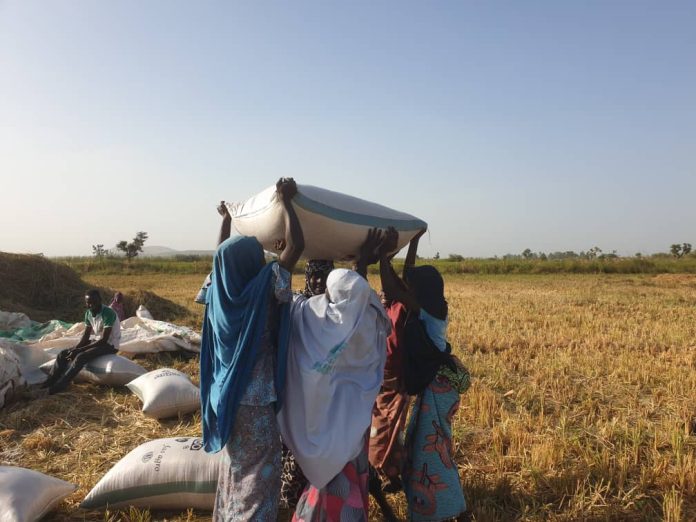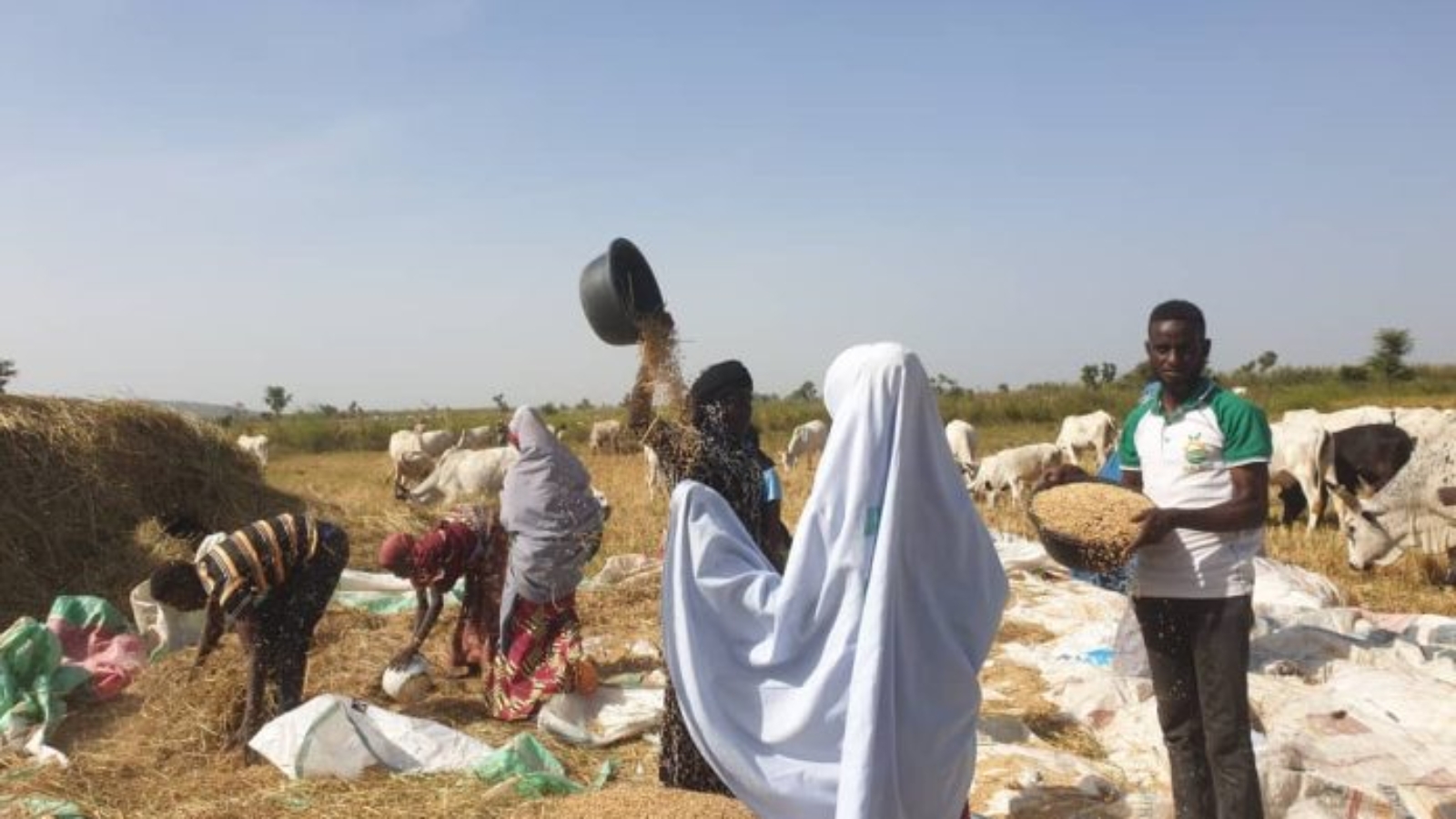As the farming activities of the 2023 season are intensifying, youths from Kano and Jigawa states villages are taking advantage of the vast farming areas in their states to earn a living and survive through farm labour. These farm activities ranges from planting time to the harvest, during raining or dry season farming.
These young people including male and female, are working on various segments of farming processes for both the large and small holder farmers, thereby making it easier for them to attain bumper harvest and at the same time providing a means of living for themselves.
Read Also:
Although it is an era of modern farming through the use of technology, the young people, between the ages of 10 to 35, still makes wave and contributes a lot to the farming sector, as not all farm activities are done with the mechanized machines.
In a visit to some of the largest farms in Kura, Bunkure and Rano axis of Kano south, many of these young men and women were sighted working in various farms. While those between the ages of 25 to 35, are doing the hard labour, the little girls of about 10 to 15 years are doing the menial jobs to accomplish the task.
Some of works they are doing include farm clearing, planting, harrowing and harvest processes, which involve cutting of farm produce like rice, beans, millet among others, and also packaging and transporting them to stores and markets.

Some of the farmers picking rice seeds for plantation in Hadejia LGA, Jigawa state
Speaking to a group of youths in a rice farm in Gafan area of Bunkure LGA, they expressed satisfaction with what they earn in every hectare and the way it gives them chance of becoming self reliant. They said 10 people are working in a harvest of one hectare of rice and that they can finish one hectare in a day.
Many of them described their vast farming land as a blessing which reduced the burden of life, abject poverty and hardship, as well as preventing their youths against going out of the villages to the cities to look for money.
Their leader, Ma’aruf Usaini Gamadan, 28, said every farming season they engage in farm labour and have no time to leave their villages for cities to look for job, adding that they earn reasonable amounts of money enough for them to cater for their needs.
“There are different works here and different people are working on those segments. Most of our youths remains at home and earn enough to take care of the family, unless if one is lazy then he will complain. Because as you can see we are working almost all year round; the rain season, post wet and wet season.
“The harvest season is more profitable honestly as it is the final stage, and rice farm is the most expensive of all. We normally start with cutting the rice and the following day we will start removing the paddy from the grasses using drum, sticks and putting inside sacks.
“We collect N50,000 per hectare and 8 or 10 of us normally work together. We sometimes share up to N4000 after removing money used for hiring some of the things we are working with,” he said.
‘We buy our marriage furniture with farm labour’
A girl from a team of ladies doing menial jobs in some farms in Hadejia local government area of Jigawa state, Sadiya Shehu, 14, said almost 90 percent of the girls working in the farms are buying their marriage furniture for themselves and through the farm labour.
She said although they sometimes merged their work with scouting for remains of farm waste, they earn more of their saving through farm labour as the farmers pay them N300 per sack and also offer gifts of farm produce.
“Many of us that you see here, are about to marry and we are working to support our parents. The little we are getting is what we use in purchasing our furniture and other utensils for our matrimonial houses. Like now, as we speak I have four sacks of rice already and about to fill the fifth one. I got all these from the farm labour and remains of farms.

Young girls working in a farm in Bunkure LGA, Kano state
“They pays N300 per sack and normally they can get 30 to 40 sacks per hectare, which is around N10, 000 and five of us work in a farm. A part from that they also give us rice and at the same time we work on the remaining dust to get some rice.”
She said other works they do is usually at the beginning of the season where they plant, remove grasses and even spray fertilizer in farms and they are all paid for that.
“We usually leave home from morning and return in the evening, that is why it is not easy. But we have to do it, we all rise to see our elders doing this,” she added.
However, others among the labourers are the porters who carry either on their head or on motorcycle to the stores and nearby places after successfully finishing the job.


Add a Comment